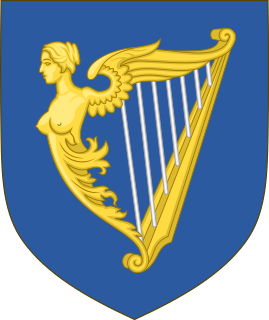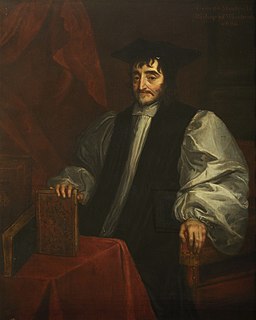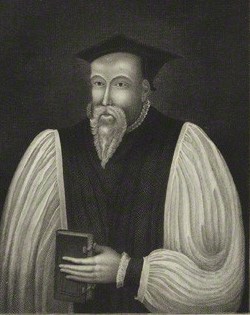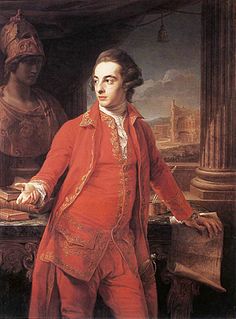Walter Benet was the Archdeacon of Wilts from his collation on 7 March 1610 until his death on 30 July 1614. [1]
From Somerset, he was educated at New College, Oxford. [2] He held livings at Little Wittenham [3] and Minety.
Walter Benet was the Archdeacon of Wilts from his collation on 7 March 1610 until his death on 30 July 1614. [1]
From Somerset, he was educated at New College, Oxford. [2] He held livings at Little Wittenham [3] and Minety.

The Irish House of Commons was the lower house of the Parliament of Ireland that existed from 1297 until 1800. The upper house was the House of Lords. The membership of the House of Commons was directly elected, but on a highly restrictive franchise, similar to the unreformed House of Commons in contemporary England and Great Britain. Catholics were disqualified from sitting in the Irish parliament from 1691, even though they comprised the vast majority of the Irish population.

Henry Labouchere, 1st Baron Taunton, PC was a prominent British Whig and Liberal Party politician of the mid-19th century.

Sir William Smith was an English lexicographer. He became known for his advances in the teaching of Greek and Latin in schools.

George Morley was an English Anglican bishop, Bishop of Worcester and then of Winchester.

(John) Horace Round was an historian and genealogist of the English medieval period. He translated the portion of Domesday Book (1086) covering Essex into English. As an expert in the history of the British peerage, he was appointed honorary historical adviser to the Crown.

Robert Holgate was Bishop of Llandaff from 1537 and then Archbishop of York. He recognised Henry VIII as head of the Church of England.

Sir Gregory Page-Turner, 3rd Baronet was a wealthy landowner and politician in late 18th century England, serving as Member of Parliament (MP) for Thirsk for 21 years.

Robert de Stratford was an English bishop and was one of Edward III's principal ministers.
Hugh of Beaulieu was a medieval English Bishop of Carlisle.

Brian Duppa was an English bishop, chaplain to the royal family, Royalist and adviser to Charles I of England.

James Bertie, 1st Earl of Abingdon, styled Hon. James Bertie until 1657 and known as the 5th Baron Norreys from 1657 until 1682, was an English nobleman.
Piers Calveley Claughton was an Anglican colonial bishop and author.
James Dugdale was an Oxford academic and administrator. He was Fellow and Master of University College, Oxford.

Edward Legge was an English churchman and academic. He was the Bishop of Oxford from 1816 and Warden of All Souls College, Oxford, from 1817.
Sir Edward Turner, 2nd Baronet was one of the Turner baronets of Ambrosden and a Member of Parliament.
Mary Doreen Lobel was an historian who edited several volumes of the Victoria County History and a three-volume British Atlas of Historic Towns.
Rev. Peter Hempson Ditchfield, FSA (1854–1930) was a Church of England priest, an historian and a prolific author. He is notable for having co-edited three Berkshire volumes of the Victoria County History which were published between 1907 and 1924.
William Page was a prolific and pioneering historian and editor. For the last three decades of his life he was general editor of the Victoria County History.

Richard Jenkyns was a British academic administrator at the University of Oxford and Dean at Wells Cathedral.
The Rev. John Collinson was an English cleric, antiquarian and county historian. He is best known for his three-volume history of Somerset which he published at the age of 34, two years before his death, and which earned him the title of "the Somerset historian".